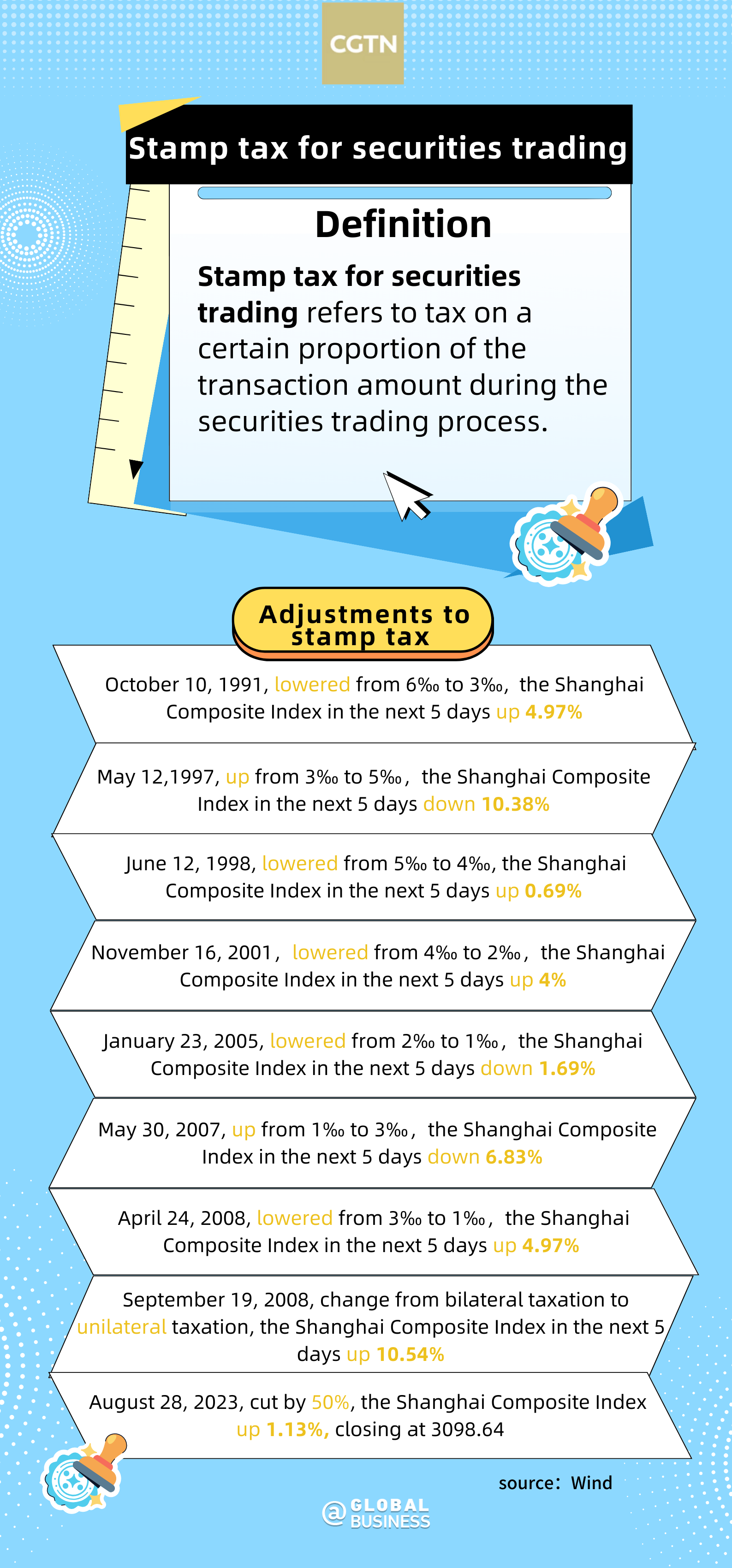China has announced a number of measures to boost the confidence of capital market investors on Sunday, including cutting the stamp tax on securities trading and temporarily slowing the pace of initial public offerings (IPOs).
China's Ministry of Finance said the government will halve the stamp tax levied on securities trading starting Monday, and the China Securities Regulatory Commission (CSRC) stated shortly thereafter that the pace of IPOs will be slowed temporarily, while ex-ante communication in relation to listed companies' large-scale refinancing plans will be strengthened.
Zhao Xijun, co-dean of the China Capital Market Research Institute at Renmin University of China, stated that the stamp duty cut on securities trading is "undoubtedly a very powerful and effective measure."
"The adjustment has a substantial positive impact on the market and is a significant measure that can have an immediate effect on revitalizing the capital market and enhancing investor confidence," Zhao added.
Qin Peijing, chief strategic analyst at CITIC Securities, said that historical data shows that reducing the stamp duty on securities transactions has played a positive role in reducing transaction costs, activating market transactions, and reflecting inclusive effects. He believes that "the implementation this time will also boost market confidence."

Alongside this, the country also announced other measures to boost the capital market. To moderately boost demand for margin trading, the CSRC said an investor will be required to deposit at least 80 percent of the amount borrowed, down from 100 percent previously, starting with the close of trading on September 8.
The total size of major shareholders' holding reduction will be managed, the commission said. The controlling shareholder or actual controller of a listed company will be unable to reduce their holdings via the secondary market in several scenarios, including when the company sees its stock price drop below its initial offering price, when it has not distributed any cash dividends in the past three years, or when cumulative cash dividends are less than 30 percent of the company's average annual net profit over the past three years.
(With input from Xinhua)